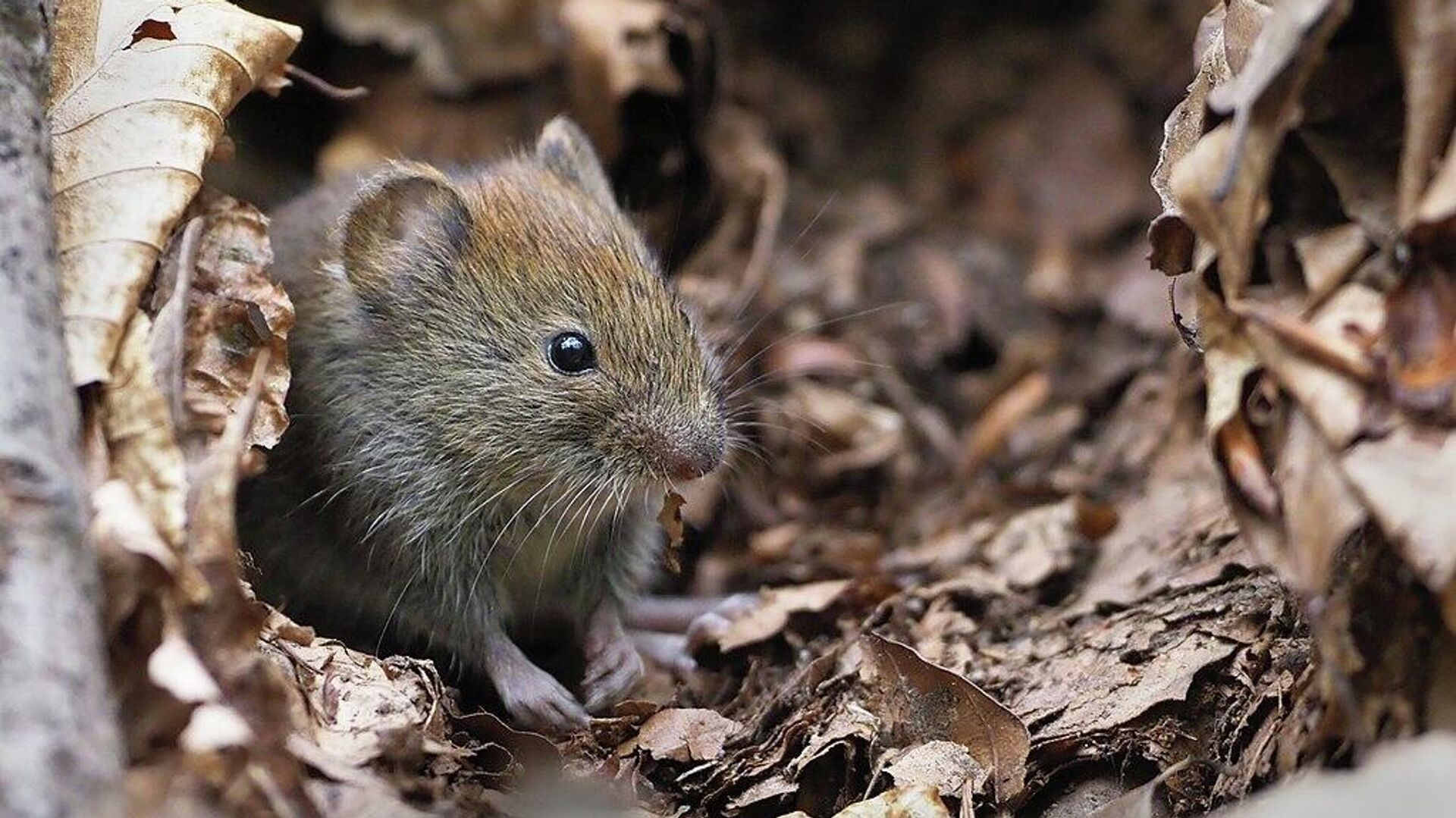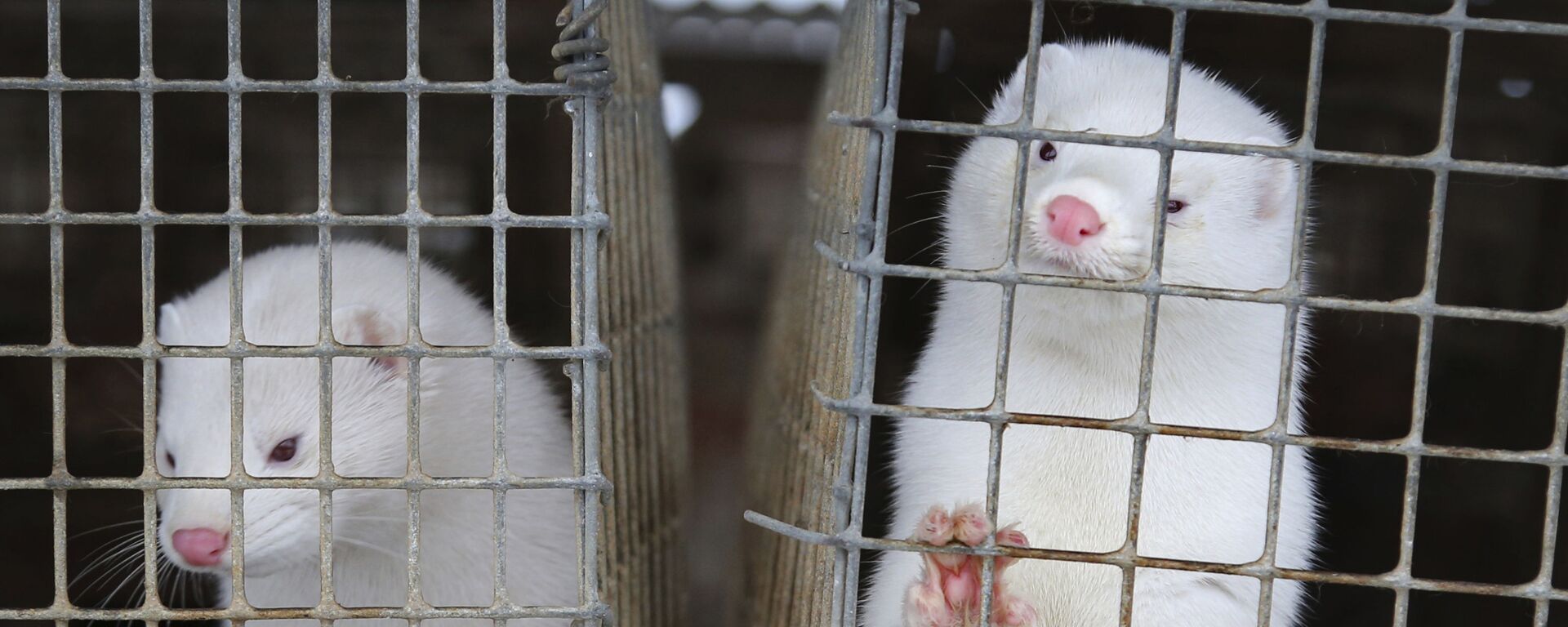https://sputnikglobe.com/20220606/swedish-scientists-find-new-rodent-coronavirus-strain-potential-to-migrate-to-humans--1096067446.html
Swedish Scientists Find New Rodent Coronavirus Strain, Potential To Migrate to Humans
Swedish Scientists Find New Rodent Coronavirus Strain, Potential To Migrate to Humans
Sputnik International
While zoonotic transmission is not certain, the virus' ability to adapt to new organisms and animal carriers has prompted researchers' concern. 06.06.2022, Sputnik International
2022-06-06T17:27+0000
2022-06-06T17:27+0000
2022-06-06T17:27+0000
europe
science & tech
coronavirus
research
https://cdn1.img.sputnikglobe.com/img/07e6/06/06/1096061838_0:105:1023:680_1920x0_80_0_0_11033356fd5529148a386a697320b275.jpg
Researchers from Uppsala University in Sweden have discovered that 3.4% of bank voles carry a betacoronavirus dubbed by scientists as Grimso virus. The betacoronavirus may eventually cross into humans just as a bat-carried coronavirus presumably did in 2019, prompting the global pandemic.The research, published in the Viruses medical journal, pointed out that pathogens related to the Grimso virus are spread among other types of voles endemic to Europe. According to the scientists, this is a bad sign as it indicates that the betacoronavirus can easily adapt to new habitats and hosts, and may thus undergo zoonotic transmission to humans.Bank voles occasionally sneak into people's homes, coming into contact with them as well as other animals that can later transfer the virus to humans. However, scientists were reluctant to be drawn on whether this specific virus is a new nascent threat. Nonetheless, they advised keeping an eye on the Grismo virus' mutations and spread to be ready.Virus studies have advanced of late after one of the coronaviruses, which normally infect animals, crossed over from bats to Homo Sapiens late in 2019, causing the global coronavirus pandemic. Despite years of studies, scientists still haven't found the exact spot and moment when coronavirus turned into the SARS-CoV-2, although the first cases were officially registered and confirmed in China in December 2019.Let's stay in touch no matter what! Follow our Telegram channel to get all the latest news: https://t.me/sputniknewsus
https://sputnikglobe.com/20210405/who-confirms-possibility-of-covid-transmission-from-humans-to-cats-dogs-tigers-1082547472.html
Sputnik International
feedback@sputniknews.com
+74956456601
MIA „Rossiya Segodnya“
2022
Tim Korso
https://cdn1.img.sputnikglobe.com/img/07e6/03/0d/1093831826_0:0:216:216_100x100_80_0_0_e3f43a960af0c6c99f7eb8ccbf5f812c.jpg
Tim Korso
https://cdn1.img.sputnikglobe.com/img/07e6/03/0d/1093831826_0:0:216:216_100x100_80_0_0_e3f43a960af0c6c99f7eb8ccbf5f812c.jpg
News
en_EN
Sputnik International
feedback@sputniknews.com
+74956456601
MIA „Rossiya Segodnya“
Sputnik International
feedback@sputniknews.com
+74956456601
MIA „Rossiya Segodnya“
Tim Korso
https://cdn1.img.sputnikglobe.com/img/07e6/03/0d/1093831826_0:0:216:216_100x100_80_0_0_e3f43a960af0c6c99f7eb8ccbf5f812c.jpg
europe, science & tech, coronavirus, research
europe, science & tech, coronavirus, research
Swedish Scientists Find New Rodent Coronavirus Strain, Potential To Migrate to Humans
While zoonotic transmission is not certain, the virus' ability to adapt to new organisms and animal carriers has prompted researchers' concern.
Researchers from Uppsala University in Sweden have discovered that 3.4% of bank voles carry a
betacoronavirus dubbed by scientists as Grimso virus. The betacoronavirus may eventually cross into humans just as a bat-carried coronavirus presumably did in 2019, prompting the global pandemic.
The research, published in the Viruses medical journal, pointed out that pathogens related to the Grimso virus are spread among other types of voles endemic to Europe. According to the scientists, this is a bad sign as it indicates that the betacoronavirus can easily adapt to new habitats and hosts, and may thus undergo zoonotic transmission to humans.
Bank voles occasionally sneak into people's homes, coming into contact with them as well as other animals that can later transfer the virus to humans. However, scientists were reluctant to be drawn on whether this specific virus is a new nascent threat. Nonetheless, they advised keeping an eye on the Grismo virus' mutations and spread to be ready.
"While the potential threat posed by the virus to human and animal health is unknown, our findings underscore the importance of longitudinal surveillance of CoVs in wild rodents in advancing current knowledge on the ecology of CoVs in reservoir populations", the paper's concludes.
Virus studies have advanced of late after
one of the coronaviruses, which normally infect animals, crossed over from bats to Homo Sapiens late in 2019, causing the global coronavirus pandemic. Despite years of studies, scientists still haven't found the exact spot and moment when coronavirus turned into the SARS-CoV-2, although the first cases were officially registered and confirmed in China in December 2019.
Let's stay in touch no matter what! Follow our Telegram channel to get all the latest news: https://t.me/sputniknewsus 


